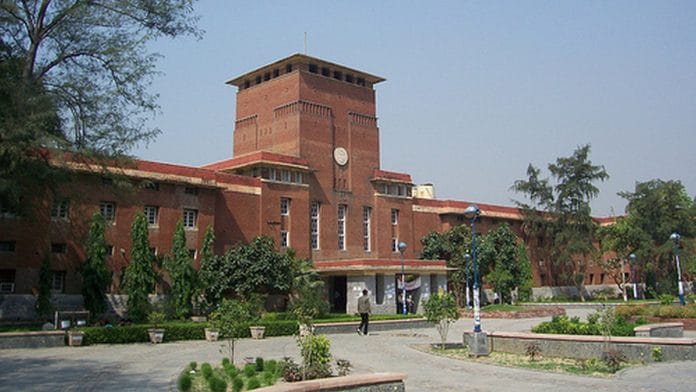The recent news of books written by Baba Ramdev and Yogi Adityanath being included in the Philosophy curriculum of Chaudhary Charan Singh University is deplorable, if not nauseating for academics and students in the country.
Although such a gimmick of dovetailing propaganda and curriculum into one another may seem ingenious, it is neither an isolated incident nor the last of its kind.
Exaggerated focus on Indian philosophy, literature and history in university curricula is foreseeable with a nationalist government in power but one might argue that this is not an inimical idea and rather inclusive of various research interests. Then what is so outlandish about it?
While there are many benefits of practising yoga, the academic obsession with it is difficult to digest. In the larger scheme of things, this uncritical and bigoted approach to research and teaching not only exploits the naivete of a student who is open to learning but establishes the bias, fundamentally taking away the tools of critical exploration.
Such decisions across institutions should be seen as a part of the larger attempt to disparage free thought, debate and overall scholarly rigour.
The attack on free academic spaces is not a new one. College and university classrooms have always been considered significantly dangerous places because they can push students to think, doubt and dissent.
Enormous pressure from Right-wing Hindu activists in 2011 led to the scrapping of A.K. Ramanujan’s essay Three Hundred Ramayanas from the Delhi University syllabus despite continuous opposition from the members of the then history department.
Right-wing teachers and student associations, the National Democratic Teachers Front (NDTF) and Akhil Bharatiya Vidyarthi Parishad (ABVP) have in the past also protested against the inclusion of other critically acclaimed texts by Kancha Ilaiah, Nandini Sundar and others in the different DU courses.
The escalation of this problem has resulted from the fact that with the current government in power, the ideology that aggressively inspired burning books and banning texts now reserves the power to make academic decisions — sitting comfortably in the syllabi-making committees, cherry-picking texts and arbitrarily deciding what should be taught and what not.
University curricula changed unprecedentedly in past year
In the last one decade, the University Grants Commission (UGC) has changed curricula in higher educational institutes at an unprecedented pace. Even under the UPA government, the semester system, Four Year Undergraduate Programme (FYUP) and other curriculum structures were implemented within a span of a few years, ultimately leaving teachers and students in a state of confusion and frustration.
With the BJP-led government in power, committees are now under a stronger ideological influence and have begun micromanaging courses, further shrinking the already limited scope of academic freedom.
In February, the UGC released the undergraduate History syllabus for all universities to follow. Unlike earlier, this syllabus included not just suggested themes for the curriculum but even specified the reading lists for all topics. The syllabus was criticised by several historians and academics across the country especially for its outdated reading suggestions and digressing themes.
While all syllabi-related changes might not make national headlines, universities are undergoing a worrisome period of curriculum changes being catapulted at national and state levels. Understandably, disciplines like English, History, Sociology and now Philosophy are bearing a heavier brunt than other subjects.
In this difficult scenario, the responsibility falls on the individuals — teachers and students — to fight the intellectual decay.
Unfortunately, with the semester system in place, an average undergraduate student under the Choice Based Credit System (CBCS)-Learning Outcomes based Curriculum Framework (LOCF) has to spend about 22 to 30 hours every week in the classroom, attending lectures and tutorials.
This makes it even more difficult for a student to read the suggested readings, let alone explore beyond it. The only way to fight against this situation was through classroom discussions.
To worsen things further, the UGC, in accordance with the National Education Policy is now promoting a blended mode of learning, allowing higher education institutions to teach up to 40 per cent of the syllabus of each course online.
The online mode of learning was initially accepted due to a lack of alternatives when the pandemic hit the country last year. But most educators who have taught through these circumstances know the extent to which online classes reduce interaction among teachers and students and negatively impact the learning outcomes and overall growth.
Meaningful interactions between teachers and students are the only hope in these abysmal circumstances. It is only through these rigorous discussions that young minds can not only be introduced to a variety of texts and scholars within and outside their discipline, but also be made to understand the politics involved in syllabus making and the fallibility of what they are taught.
Disha Ray is a student of St. Stephen’s College, Delhi






